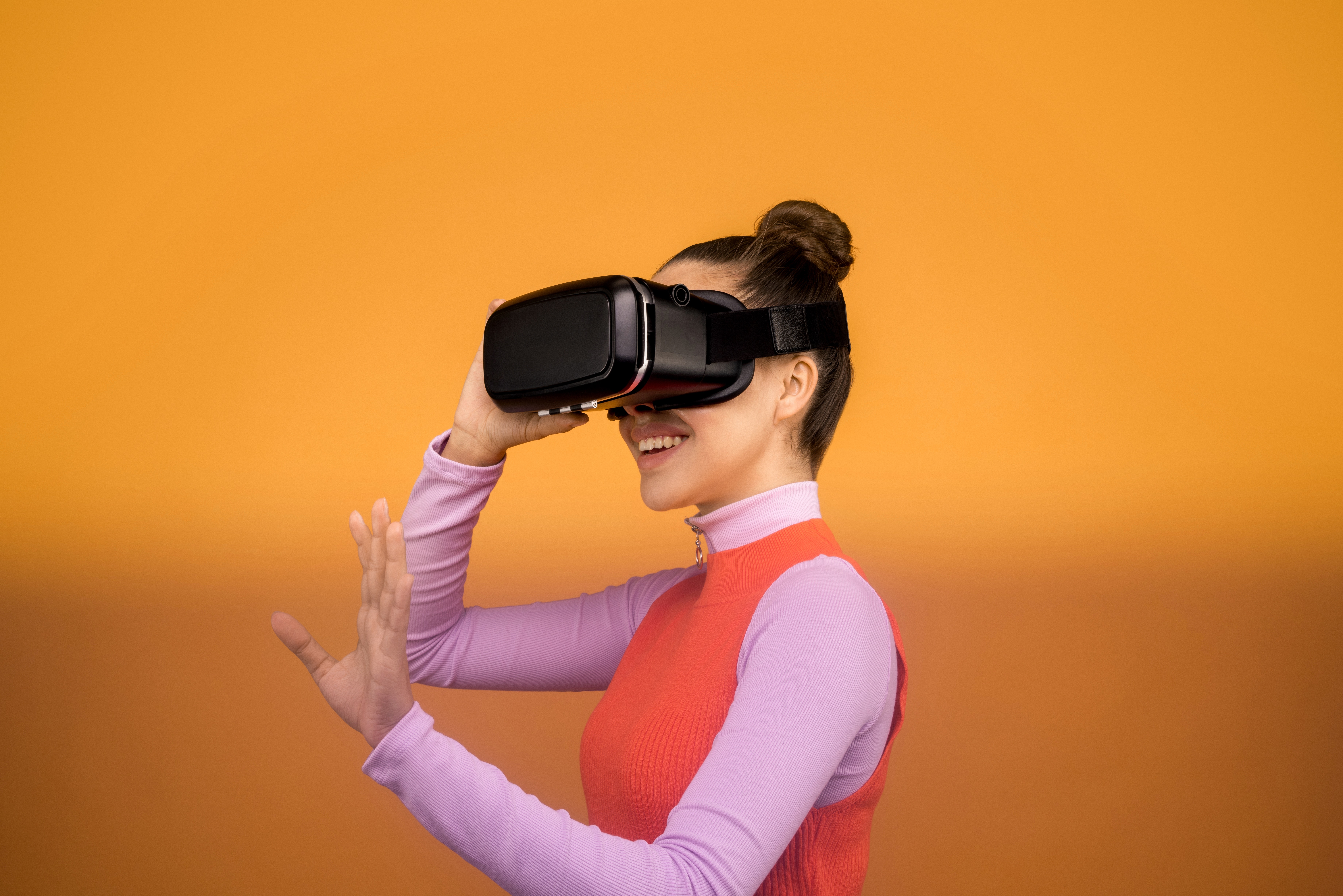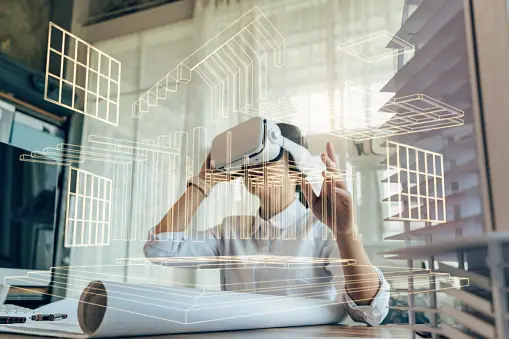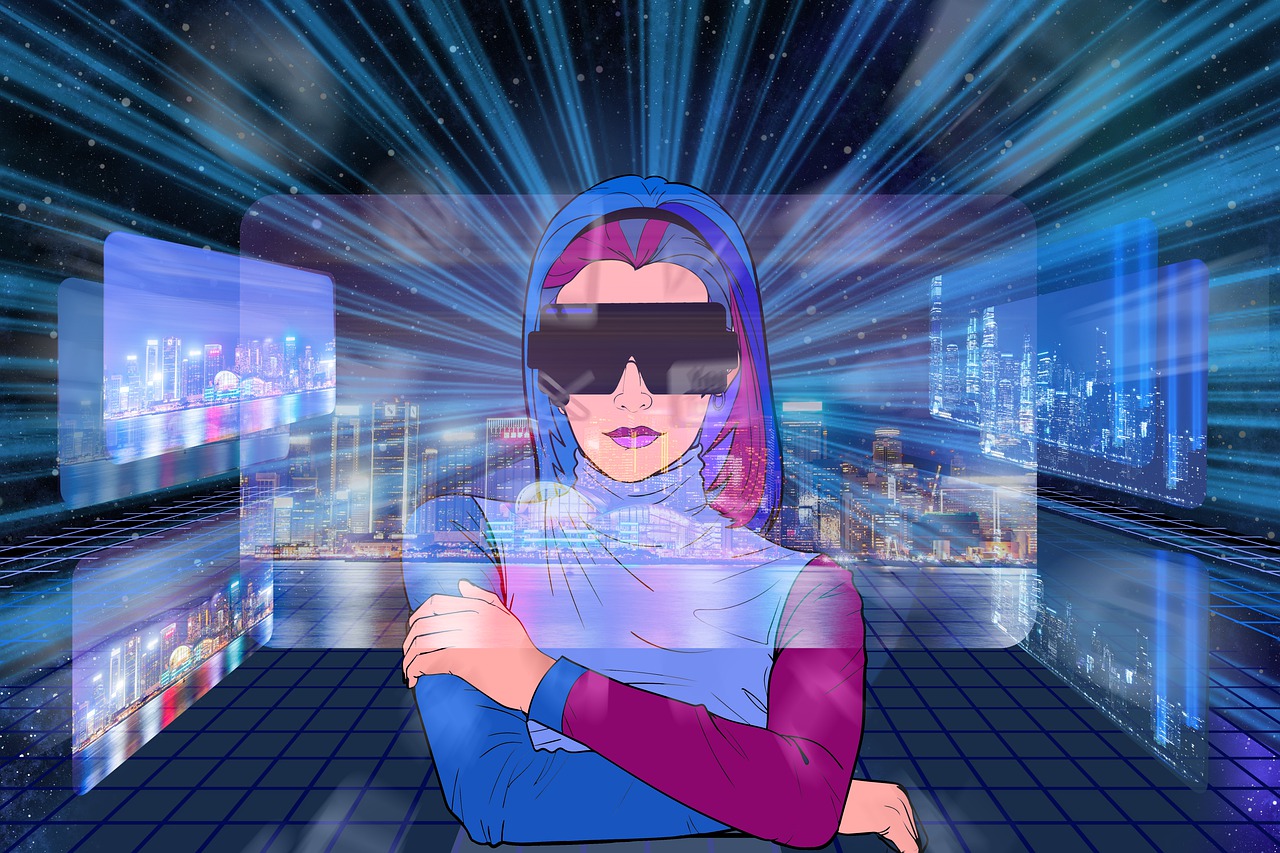by Danika Ciullo, Marketing Advisor CIO Studio
With ChatGPT and the generative AI revolution capturing the public's imagination, the concept of the metaverse has been sidelined in 2023.
The idea of a virtual reality space where users can interact with a computer-generated environment and other users in real-time is a decades-old one that has been brought to life in many different guises over the years.
If you logged into Second Life circa 2005 you were entering what was then the largest virtual world in existence, where thousands of people congregated to chat and explore a digital landscape.
More recently, Fortnite, the wildly popular online video game from Epic Games has become one of the most interactive digital worlds, attracting millions of users all over the planet.
Beyond 2D
But those metaverse-like environments are typically experienced in 2D via a computer or smartphone screen.
A truly immersive world requires the use of virtual reality (VR) offering a 360-degree experience. Social media giant Meta is spending around US$10 billion a year on its Oculus VR headsets and online platforms to build what Facebook founder Mark Zuckerberg has described as the “next chapter for the internet”.
Zuckerberg’s metaverse will be a place offering “immersive all-day experiences” beyond gaming and social media. He sees us working and shopping in the metaverse too.
Early iterations of Meta’s metaverse have been lacklustre, with clunky legless avatars roaming around virtual worlds that don’t appear to have changed much since the days of Second Life.
Horizon Worlds is Meta’s free VR-based game that lets users socialise, hold events and play games together.
But it has struggled to attract users. Nevertheless, Zuckerberg continues to invest billions in his metaverse vision, convinced that improvements in virtual reality headset hardware and better software and metaverse design will make the difference.
Most experts agree with him, pointing out that the metaverse is the logical next step for experiencing the internet.
But there are many big questions still to be answered about how the metaverse will operate, who the key platform providers will be, and whether the over-reach of Big Tech companies during the Web 2.0 era will be repeated or even amplified in a world where every data point, down to our eye movements and gestures may be captured.
Meetings in the metaverse
Companies such as Accenture are already issuing VR headsets to employees to hold Microsoft Teams meetings in a virtual world. Apple didn’t even mention the metaverse at the recent launch of its mixed-reality Vision Pro headset, but the remarkable hardware advances Apple has achieved could inspire innovation that improves the metaverse experience the likes of Zuckerberg craves.
Here in New Zealand, a team of developers at Weta Digital, which was bought by virtual reality game creator Unity in 2021, is working on 3D visual effects tools that will help bring metaverse worlds to life.
Its technical complexity means the metaverse may still take a few years to become mainstream, and physical limitations on the length of time it is comfortable to wear a VR headset will likely see it complement rather than replace our existing flatscreen computers.
But we can't write off the concept of the metaverse. Indeed, as with generative AI, it makes sense for New Zealand businesses to pay close attention to its development and to experiment with the hardware and online platforms to see what’s possible.
Breakthrough use cases could see this oft-scorned category take off virtually overnight.
The metaverse gives us 6 key opportunities in NZ:

1. Enhanced user engagement
The metaverse allows businesses to create highly immersive and engaging experiences for their customers. By leveraging virtual reality, augmented reality, and other technologies, businesses can provide unique and interactive experiences that go beyond traditional methods.
Example use case: Celebrity Beyond - the first virtual cruise ship in the metaverse.

2. Virtual commerce
The metaverse provides a platform for virtual commerce, where users can buy and sell virtual goods, services, and experiences. Businesses can create virtual storefronts, launch virtual products, and establish virtual marketplaces, unlocking new revenue streams.
Example use case: Bloomingdale’s store in the metaverse

3. Advertising and marketing
In the metaverse, businesses can employ innovative advertising and marketing strategies. They can create virtual brand experiences, product placements, and interactive ads within the virtual environments, reaching users in new and engaging ways.
Example use case: Chipotle’s VR burrito builder

4. Collaboration and remote work
The metaverse can revolutionise remote work and collaboration by enabling virtual meetings, conferences, and collaborative spaces. Businesses can create virtual offices and workspaces, allowing employees to work together regardless of geographical locations.
Example use case: Mesh for Microsoft Teams

5. Virtual Events and Entertainment
Host virtual events, training, conferences, concerts, and other forms of entertainment. Provide immersive experiences that extend beyond physical limitations worldwide.
Missed out, Swifties?
Thousands missed out on tickets to the pop star’s Australian concerts. In the future, the metaverse could offer an opportunity to be there virtually, with a much lower price of admission.
Example use case: Travis Scott’s concert in Fortnite

6. Digital Twins
Building a virtual representation of objects, infrastructure and even entire cities is incredibly useful in aiding design, and management of infrastructure. That’s why development of digital twins has been added to the Aotearoa Digital Strategy.
Being able to explore a digital twin in a meta verse environment can enhance the experience and encourage collaboration.
Example use case: Lockheed Martin’s Earth Observations digital twin
New Business Models using Metaverse
The metaverse can enable the emergence of new business models and ecosystems. As an exporting nation at the bottom of the world, the lack of a presence close to potential customers can be a big disadvantage.
The metaverse and the platforms, marketplaces, and infrastructure that will underpin it in the coming years, create opportunities for our startups, entrepreneurs and already established businesses.
However, it's important to note that the metaverse is still an evolving concept, and the full extent of its potential is yet to be realised. As technology continues to advance, businesses will need to adapt and explore how to best leverage the metaverse to drive growth and innovation.
Get in touch with CIO Studio’s Core Advisors to find out how your business can lay the groundwork to take advantage of metaverse platforms and applications.


